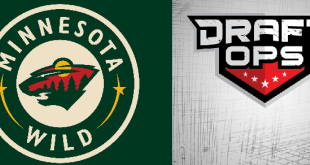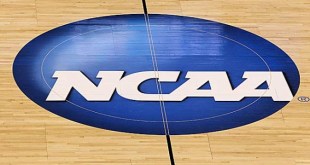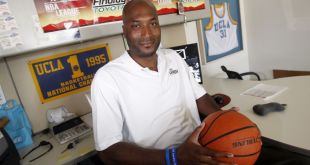Last month the National Labor Relations Board (NLRB) issued an advice memorandum concerning the Northwestern football handbook, and the team’s social media rules. An NLRB Associate General Counsel concluded that the team rules were initially unlawful, but were immediately changed once given notice, and brought within the confines of the National Labor Relations Act (NLRA). The very first footnote in the advice memo assumes for the purposes of the memo that Northwestern’s scholarship football players are employees. This memo was one person assuming an employee status in a limited circumstance, not a reversal of last year’s NLRB ruling, and is still miles away from the NLRB declaring all student-athletes to be employees.
A Huge Win for NCAA Reform? Think Again
The advice memo stated that the previous social media policy was in violation of Section 8(a)(1) of the NLRA, which states that it is an unfair labor practice (ULP) to “interfere with, restrain, or coerce employees” in the exercise of their Section 7 rights (which includes certain protected communications). Northwestern has since corrected their social media policy, but the NLRB didn’t take kindly to how the original policy was written. Northwestern had a fairly standard draconian policy that pretty much said “hey don’t make the University (or yourself) look bad by what you put on social media.” Several of the policies in the Northwestern University Football handbook were fairly assertive, saying “you NEED to do this,” and “DON’T do this” and were simply overly controlling on the athletes.
Even after the changes, the NLRB advice memo plainly says that the changes don’t rise to the level of actually retracting the unlawful clauses. BUT. Having said all that, the NLRB Associate General Counsel determined that “it would not effectuate the policies and purposes of the NLRA to issue [a] complaint in this case.”[i] After the potential ULP charge, Northwestern modified their rules, gave notice to the players, and does not have a history of ULPs, allowing the NLRB to believe that the rules would not be implemented again in the future.
In laymen’s terms, Northwestern did an adequate job of correcting the issue, so it doesn’t rise to the level of an NLRB problem. This is relatively meaningless. The more pressing fact at hand is that the NLRB assumed, for just a second, that scholarship football players at a private school (Northwestern and the other 16 FBS private schools) are employees. Many are taking this to be the NCAA pay-for-play equivalent of the levees breaking. If the NLRB is assuming for a second that this one private school’s football athletes are (subjectively) considered employees for one small issue, all football student-athletes in NCAA FBS must be about to follow. This is categorically not the case.
We have looked at this issue before, regarding the NLRB’s view on NCAA student-athletes (specifically Division I, FBS). Nothing has changed, the Board is still not willing to poke its nose into college football, or intercollegiate athletics in general. The NLRB does not want to create disparities within n individual football team (scholarship vs. walk-on), or create disparities within an overall “workforce” – 17 FBS private school football athletes versus the other 100+ public school football athletes.[ii] This is not a definitively binding NLRB decision, it is an advice memo, which addresses what might occur in any case/charge brought. William Gould IV, who served as chair of the NLRB for four years, did not attribute much credence to the footnote which assumed the players were employees:
“They only have authority to opine on issues of law that relate to employees. So they’re just assuming for the purposes of this memo they’re employees because otherwise the memo would have absolutely no significance and they couldn’t address any of the issues.”[iii]
This puts the advice memo into some perspective. The ideals of the NLRA are not advanced by creating disparities in a “workforce,” that creates more work for the NLRB. The Act is not advanced by taking an assumption from an advice memo and using it to develop a new employee population under the Act, that a previous decision avoided.
The NLRB punted on the Northwestern football athlete issue for precisely these reasons; any decision on the private FBS schools would create differences in the hypothetical NCAA FBS “workforce” that would not lead to uniform application per state laws. This advice memo doesn’t change the landscape of college athletics so much as it addresses the policies of one private school. While this could apply to the other 16 private schools in FBS, it does not necessarily address any issues that could be applied FBS-wide to include both public and private schools. While this decision would affect Northwestern’s football scholarship athletes,[iv] it does not address the overall issues that the NLRB would have with all FBS athletes. This will continue to prevent the NLRB from weighing in on pay-for-play, as well as the employment status of FBS football student-athletes.
[i] Deep down in the Unfair Labor Practice Case Handling Manual lies their reasoning, stating that if the party (Northwestern) takes sufficient action (it was okay action), it is then up to the NLRB to determine if they really care anymore.
[ii] Keeping in mind that several states have legislation prohibiting state employees (if public school football athletes were employees they would be governed by this) from unionizing, IF they were considered employees.
[iii] http://www.latimes.com/sports/sportsnow/la-sp-sn-northwestern-nlrb-memo-20161011-snap-story.html
[iv] This could similarly apply to other sports’ scholarship athletes at private schools.
 The Sports Esquires Putting Sports on Trial
The Sports Esquires Putting Sports on Trial




